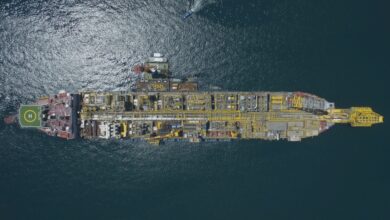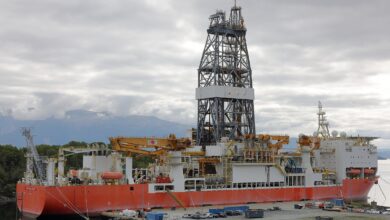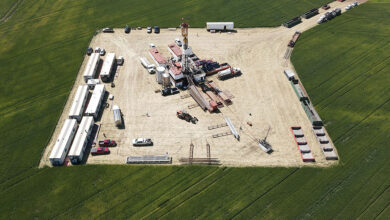In post-Macondo world, more must be done to get the truth out about our industry
The drilling industry has facts and truth on its side, yet it has done a poor job of relating those facts and truths to the public and policymakers. In a post-Macondo world, getting our message out will be more important than ever, panelists said at the IADC Annual General Meeting, held 11-12 November in San Antonio, Texas. The session, moderated by IADC president Dr Lee Hunt, was made up of leaders from the Gulf of Mexico Foundation, American Petroleum Institute (API) and Cobalt International Energy.

Dr Quenton Dokken, executive director of the conservationist group Gulf of Mexico Foundation, noted that he was neither trying to defend the drilling industry nor speak for us. “I’m trying to put the facts and the truth out,” he said, noting the importance of the oil and natural gas industry to the nation. “Florida – how far do you think their tourism industry would get without hydrocarbons? Tourists don’t walk to Florida… The fishing industry, the agriculture industry. None of these industries could exist without hydrocarbon products.”
Nevertheless, despite the importance of the E&P industry, Macondo was a serious event, and Dr Dokken implored the industry to learn its lessons from this tragedy. “A spill like this – it’s a ‘Gotcha!’ event,” he said. “It puts the spotlight on all the kinks. As Warren Buffett said, when the tide goes out, you see who’s swimming naked.”
He pointed specifically to three areas where the industry must improve. First is the lack of knowledge about the deepwater environment – what’s happening down 5,000 ft or 10,000 ft? What’s there to impact? “We’ve got to put money back into … deepwater biology, ecology and science,” he said.
The second area is the lack of effective decision-making, which was almost certainly a part of what happened on the Macondo well, even though the official report has yet to be released, he said.
Finally, there’s the lack of effective spill response technologies. Dr Dokken contended that response technology has not kept pace with industry’s technology to explore, drill and produce, and that must change. Moreover, building more booms and stockpiling more dispersants is not the answer. “You’ve got to have the technology down at the wellhead,” he said.
The second panelist, API president/CEO Jack Gerard, echoed some of Dr Dokken’s comments and urged the industry to improve its efforts to educate the public on what the oil and gas industry really does and its critical contributions to the US economy.
Although the November elections has put more legislative control back to Republicans, this also means that “the Obama Administration is likely to rely more heavily on its regulatory and executive authorities to move their agenda forward,” Mr Gerard warned.
“We will need to use all the advocacy tools at our disposal. That includes an extensive grassroots mobilization network, a top-notch research team and proactive communication assets,” he said.
Building that grassroots network means tapping into the 9.2 million Americans whose jobs are directly tied to the oil and gas industry. “Good public policy is the result of a robust dialogue. We need to engage that dialogue and make sure every mom and dad engaged in this industry is expressing their feelings at the local PTA meetings, local Cub Scouts events, at their local churches and communities, so the public better understands the role of America’s oil and natural gas industry.”
On getting the industry back to work in the Gulf of Mexico, Mr Gerard voiced appreciation for the administration’s lifting of the drilling moratorium. “But as everyone in this room understands, that was only the first step in a process. We need clear rules that are fairly enforced and enough resources for the agency to grant the permits necessary for us to get back to work,” he said.
Mr Gerard refuted the argument that the government is underfunded and therefore may not have the resources required to handle the permitting process. In reality, the Bureau of Ocean Management, Regulation and Enforcement (BOEMRE) is well funded by the oil and gas industry, he said. “We believe there’s ample resources. It’s a question of priority. We strongly encourage them to prioritize the resources they have.”
Providing the perspective of an independent producer working in the Gulf of Mexico was the third panelist, Van Whitfield, executive vice president of Cobalt International Energy. He noted that, at his company, so far the biggest change brought on by Macondo has been the reduction of a planned two-rig program for 2011 to a one-rig program. That’s not likely to change until operators get clarity as far as rules and requirements in the Gulf. “I venture to say that’s true for most small operators,” he said.
One effect of this delay in the Gulf means the acceleration of drilling programs in other areas of the world, which for Cobalt is the deepwater West Africa, where the company has “a massive acreage position” and more than 86 defined prospects.
In the Gulf of Mexico, the Macondo event will have implications on many aspects of future E&P operations, Mr Whitfield contended. Not only will drilling and subsurface teams have to do more planning farther ahead of time, but well designs and contingencies must become more robust, he said. Additional time must also be built in to satisfy new requirements and to obtain permits. “That’s just a fact of life,” he said.
On well costs in a post-Macondo world, Mr Whitfield commented: “There’s a lot of information out there about plus or minus 2% increase in cost and time. The work we’ve done says it’s going to be 10 times that. We’ve got really good, valid information that says we’re looking at a good 20% increase in some of our well budgets. These are expensive wells, so that’s a significant, material change.”




